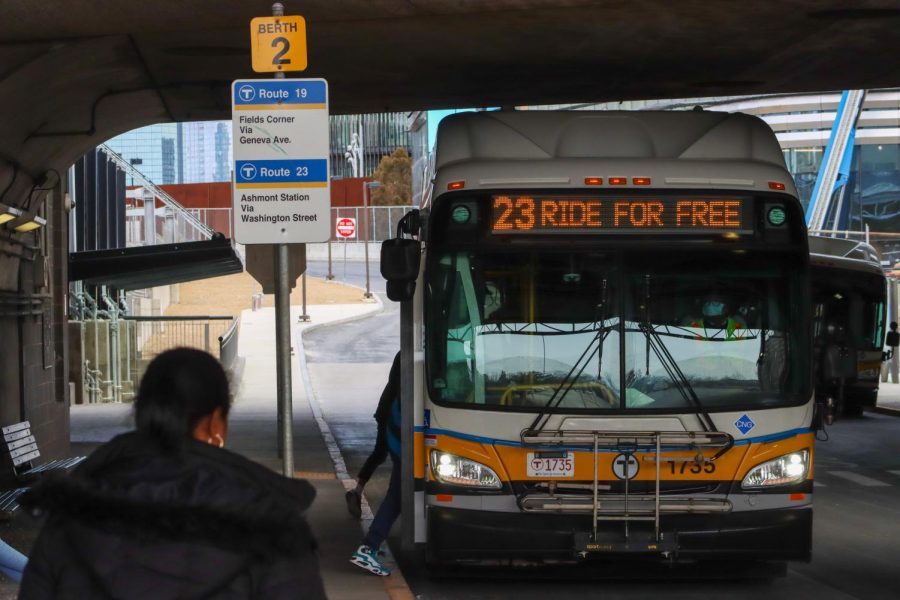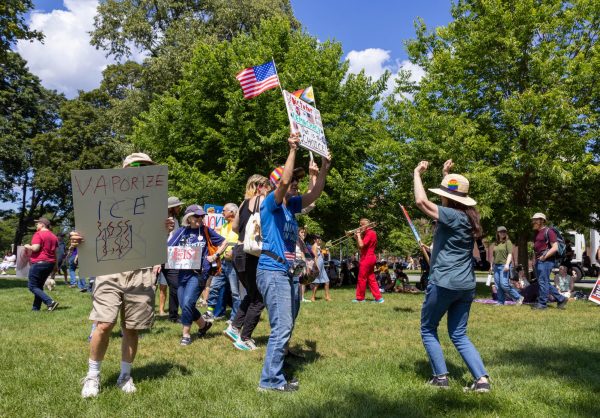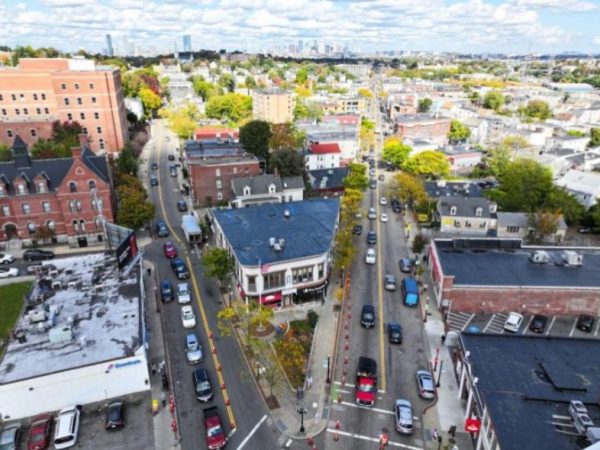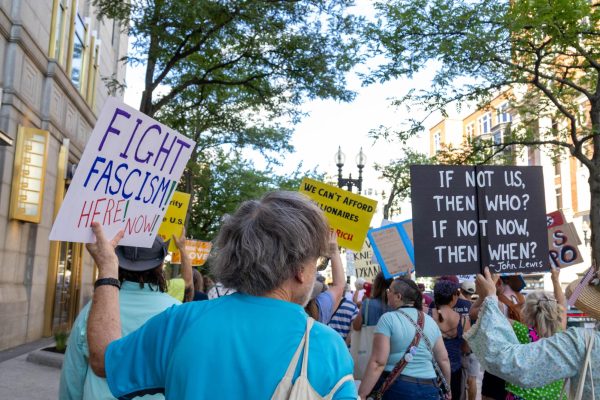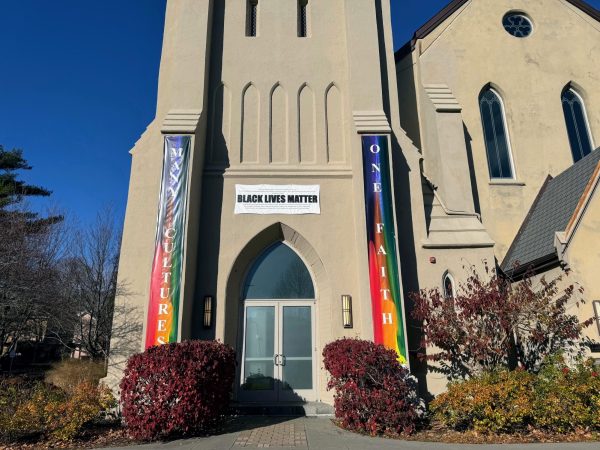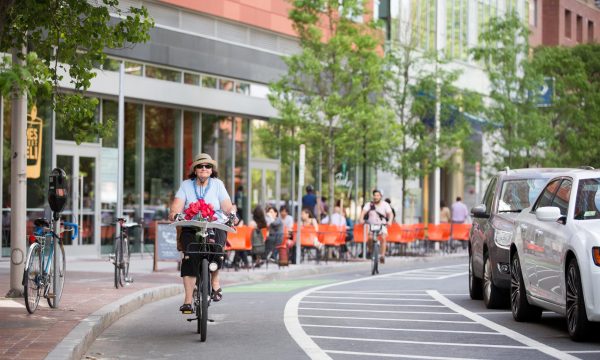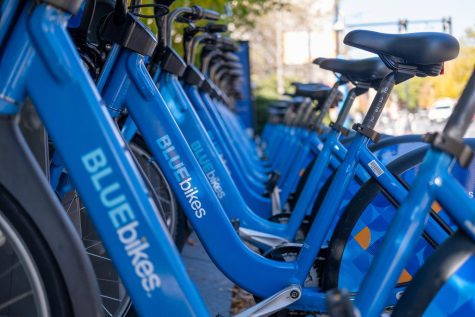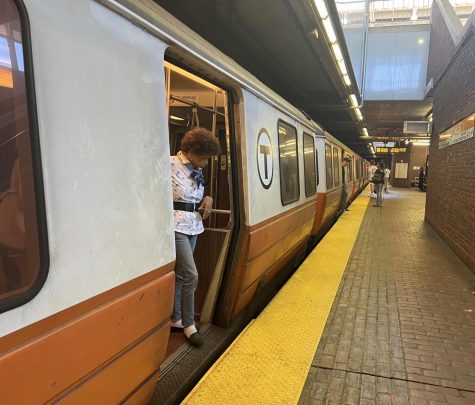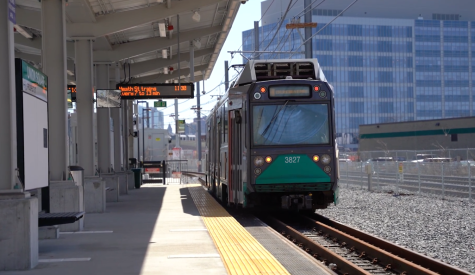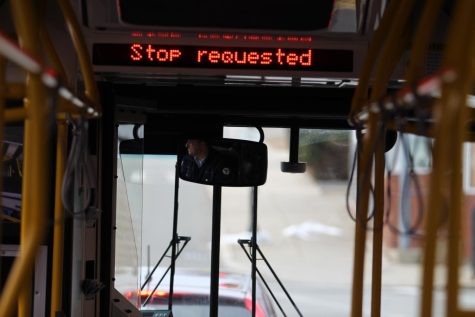Transit activists celebrate anniversary of fare-free buses, call for expansion
“If people can put their money back, take it from transit and put it back into other areas of their life, this is what is changing people’s lives.”
Photo: Ben Crawley
The free Route 23 bus arrives at Ruggles Station. This is one of the most active lines in the whole system and has been fare-free for almost a year.
Boston is almost halfway through a two-year pilot program that made the Route 23 and 29 buses free, and advocates and riders alike have lauded the program. Some are now calling for more lines to become fare-free as well.
The Route 23 and 29 buses have some of the highest ridership in the entire MBTA bus system. These two lines were made fare-free after another pilot program made the Route 28 bus free beginning August 2021. According to the Boston Department of Transportation, the 28 bus became the most popular line after it was made fare-free.
These buses also serve communities that have been disproportionately impacted by COVID-19, and according to the Mayor’s Office, making these routes free is an essential step for Boston’s recovery following the pandemic. During her State of the City address last month, Mayor Michelle Wu herself even highlighted and celebrated the pilot program, which is supported by $8 million in federal COVID-19 relief funds. The Mayor’s Office could not be reached for comment for this story.
However, before this pilot program, transit activists have been fighting for low-income fares or making certain lines free for years. One group involved in the fight is the T Riders Union, which is part of the Alternatives for Community and Environment group.
“Free bus fares have really been kind of a no-brainer,” said Mela Bush-Miles, the director of T Riders Union, after hosting a transit equity event on Feb. 10 in Nubian Square. “If people can put their money back, take it from transit and put it back into other areas of their life, this is what is changing people’s lives.”
Bush-Miles is leading a campaign to get the MBTA to issue lower fares for people who have little to no income, similar to low-income fare programs in other cities, like New York City.
“If you have low or no fare to get on a bus, what do you do?” she said. “You go to your doctor’s appointment more. There’s no barrier to get to your destination, to go visit friends and family, to go to the doctor, to get to work, to add that money back into your budget for food, for healthcare, for utility bills.”
Residents of Roxbury, Mattapan and Ashmont are supportive of this pilot program, Bush-Miles said. This includes people like Joseph Eubanks Jr., a resident of Egleston Square who takes one of the free buses almost daily.
“It was a good gesture for the mayor and elected officials to do this, ‘cause it helps a lot of people out there struggling to make ends meet,” he said.
But he acknowledges that there are some areas of the program that can be improved. The bus schedule, for example, is infrequent, he said, and some of the buses like the 29 bus do not run on Sundays or holidays. Eubanks also said that congestion is a big issue on the free buses as well.
“I took the 23, and it was packed wall to wall, but then there was another bus right behind us. It was a 23, but we didn’t know,” he said. “Bus driver didn’t tell us, he packed us all on the bus. People are still getting COVID — COVID is still a fear, RSV is a fear, pneumonia is a fear. People don’t wanna be packed on the bus, free or not.”
Staffing has also been an issue with the MBTA. T officials said in October that the MBTA is 300 drivers short of where they want to be. They recently released a revised bus plan that will increase service and trip frequency, which they said will require 440 more drivers.
“I just hope that they can make sure the buses are more frequent and that people don’t have to wait 25 minutes on a weekday for a bus,” Eubanks said.


